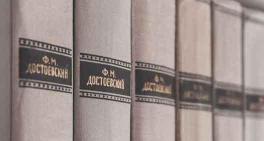Supreme Court sides with Chicago museum in terror case
Supreme Court News
The Supreme Court is preventing survivors of a 1997 terrorist attack from seizing Persian artifacts at a Chicago museum to help pay a $71.5 million default judgment against Iran.
The court ruled 8-0 Wednesday against U.S. victims of a Jerusalem suicide bombing. They want to lay claim to artifacts that were loaned by Iran to the University of Chicago's Oriental Institute more than 80 years ago.
Justice Sonia Sotomayor wrote for the court that a provision of the Foreign Sovereign Immunities Act does not support the victims' case. That federal law generally protects foreign countries' property in the U.S. but makes exceptions when countries provide support to extremist groups.
The victims, who were wounded in the attack or are close relatives of the wounded, argued that Iran provided training and support to Hamas, which carried out the attack. Iran has refused to pay the court judgment.
The federal appeals court in Chicago had earlier ruled against the victims. The Supreme Court affirmed that ruling Wednesday.
The artifacts in question are 30,000 clay tablets and fragments containing ancient writings known as the Persepolis Collection. University archeologists uncovered the artifacts during excavation of the old city of Persepolis in the 1930s. The collection has been on loan to the university's Oriental Institute since 1937 for research, translation and cataloging.
Related listings
-
NY high court nixes Trump's bid to delay defamation suit
Supreme Court News 06/18/2018New York's highest court on Thursday turned down President Donald Trump's latest bid to delay a defamation suit filed by a former "Apprentice" contestant who accused him of unwanted groping and kissing.The ruling by the state Court of Appeals didn't ...
-
Supreme Court allows Ohio, other state voter purges
Supreme Court News 06/13/2018The Supreme Court ruled Monday that states can clean up their voting rolls by targeting people who haven't cast ballots in a while.The justices rejected, by a 5-4 vote Monday, arguments in a case from Ohio that the practice violates a federal law int...
-
Court: Montana minimizes impact of mining near Yellowstone
Supreme Court News 05/25/2018A gold exploration proposal near Yellowstone National Park faced a significant setback as a judge blamed Montana officials for understating the potential for mining to harm land, water and wildlife.The ruling released Friday means the Montana Departm...

Texas Adopts Statewide Texting-While-Driving Ban
Effective September 1, 2017, Texas will become the 47th state to pass a statewide ban on texting while driving. Governor Abbott’s signing of House Bill 62 is an effort to unify Texas under a uniform ban and remedy the “patchwork quilt of regulations that dictate driving practices in Texas.”
The bill specifically prohibits drivers from reading, writing, or sending an electronic message on a device unless the vehicle is stopped. That includes texting and emailing. It does not, however, prohibit dialing a number to call someone, talking on the phone using a hands-free device, or using the phone’s GPS system.
Violations would be punishable by a fine ranging from $25 to $99, to be set by each municipality. Although penalties could rise to as much as $200 for repeat offenders.
Studies have found that a driver’s reaction time is half as much when a driver is distracted by sending or reading a text message. According to state officials, in 2015 more than 105,000 traffic accidents in Texas involved distracted driving, leading to at least 476 fatalities.




